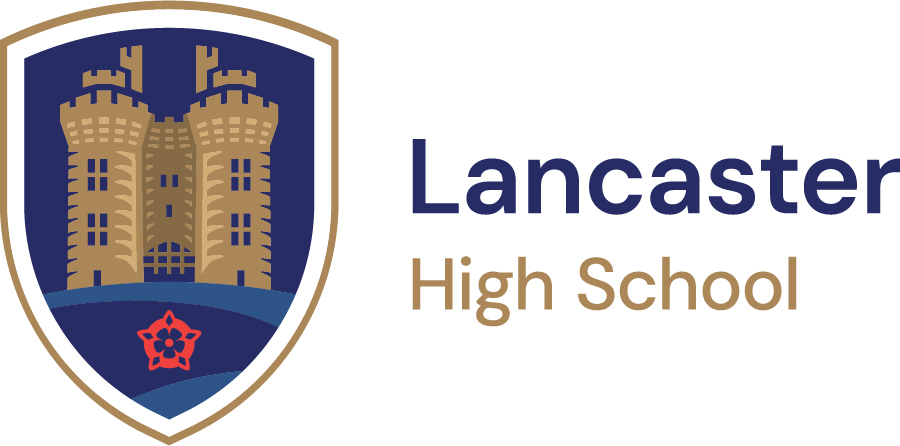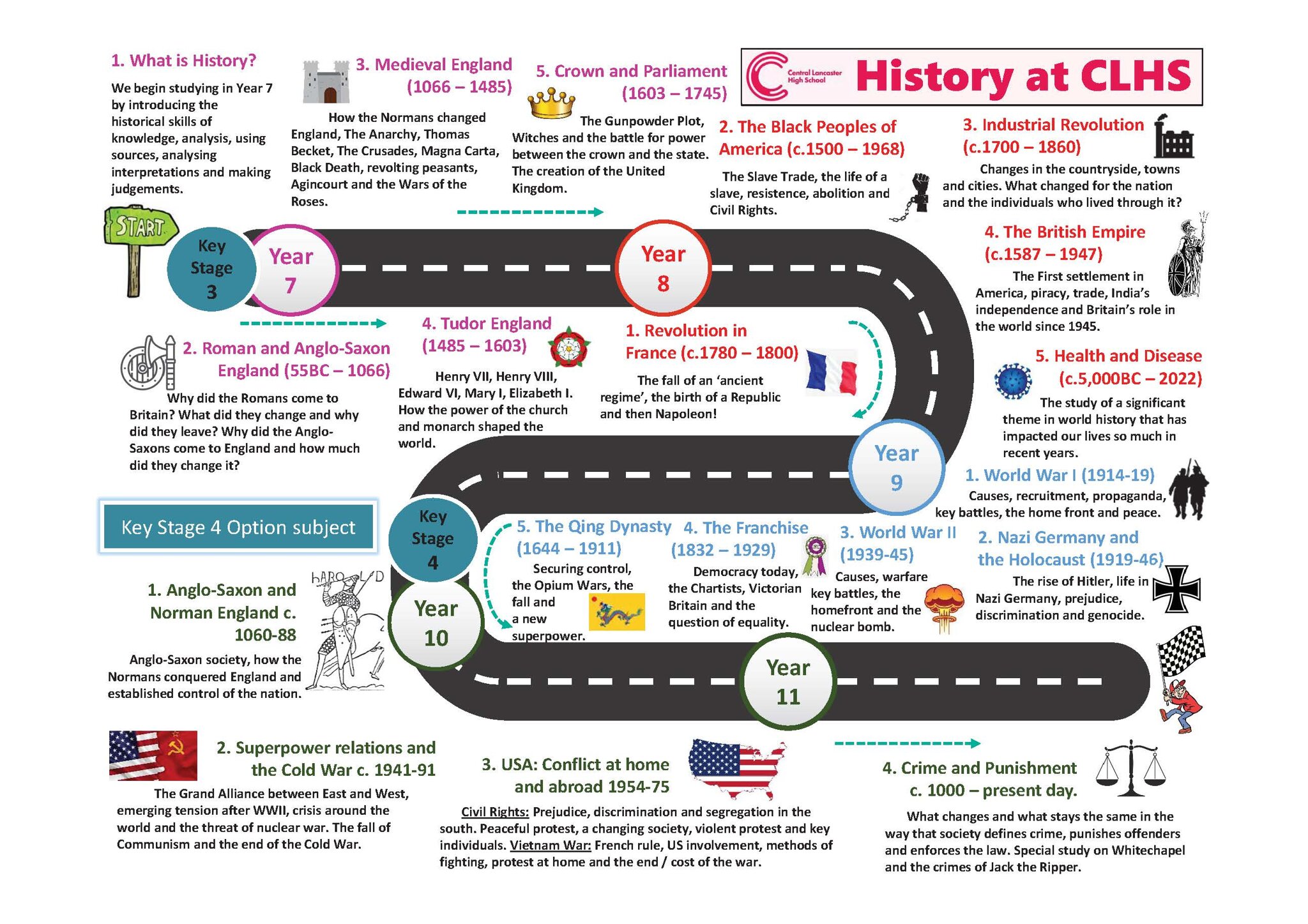"A generation which ignores history has no past and no future."
Robert Heinlein
Subject Staff
| Name | Role | Contact |
|---|---|---|
| Miss J Parsons | Head of Department | Contact |
| Mr M Auger | Classroom Teacher, Deputy Headteacher | Contact |
| Miss D Brown | Classroom Teacher, Head of Year 11 | Contact |
Our Intent:
At Lancaster High School, we see our students as trainee historians whom we develop in exceptional historians that will foster a lifelong passion for history.
We strive to develop young people who will leave us with an understanding of how the world in which they live has been shaped by past events, and how an understanding of this, can contribute towards a richer experience of life in our local, national and global community.
Through a study of the past, we intend to develop individuals who will appreciate, but also challenge, aspects of our own society. This is a particular challenge for some in our community, which we strive to address with our enquiry based approach to all learning.
We focus our study primarily on Britain and take opportunities to see how events that we have study affected our locality. In addition to Britain, we introduce a wide focus into Europe and beyond. We develop our students so that they are able to write historically in an extended synoptic fashion using the following key skills. Furthermore, we support pupils to understand how these skills will serve them well in many aspects of their lives.
- Knowledge: To develop a detailed understanding of events and individuals involved in them
- Analysis of the events that we study focusing on, cause, consequence, significance, change, continuity, similarity and difference.
- Use of Sources, what can sources tell us and how do we assess their usefulness?
- Interpretations and judgements, identifying them, knowing why they may be different, making judgements about which they agree with and the ability to form their own.
Our curriculum roadmaps give a more detailed overview of our programme of study both overall and within each year group from 7-9. In red text, are the key themes that we pick up and follow through the units. Key skills are highlighted in black, local history studies in green and assessment points in blue.
View History Curriculum - Roadmap Overview
KS3 Overview of Units
| Term 1 Topics | Term 2 Topics | Term 3 Topics | Detailed Overview | Curriculum Roadmap | |
|---|---|---|---|---|---|
| Year 7 |
Roman and Anglo-Saxon Britain Early Medieval England |
Later Medieval England Tudor England |
Crown and Parliament |
View Document | View Document |
| Year 8 |
Revolution in France Black Peoples of the Americas |
Industrial Revolution |
British Empire Health Disease and in society over time |
View Document | View Document |
| Year 9 |
The Franchise World War I |
Nazi Germany and the Holocaust World War II |
The Qing Dynasty 1644-1911 |
View Document | View Document |
Parents / carers can best support pupils by: Looking through pupils’ books and asking questions about what they have studied and then discussing how and why it may been important. Discussions about current political debates will also support an understanding of many of our topics.
Key Stage 4:
Qualification type, exam board and syllabus if applicable: GCSE History, Edexcel
Link to specification: https://qualifications.pearson.com/en/qualifications/edexcel-gcses/history-2016.html

Assessment:
| Paper 1 | Crime and punishment in Britain, c1000–present and Whitechapel, c1870–c1900: crime, policing and the inner city. | 1 hour 15 minutes | 30% |
| Paper 2 | Anglo-Saxon and Norman England, c1060–88 and Superpower relations and the Cold War, 1941–91 | 1 hour 45 minutes | 40% |
| Paper 3 | The USA, 1954–75: conflict at home and abroad. | 1 hour 20 minutes | 30% |
Parents / carers can best support pupils by: Looking through pupils’ books and asking questions about what they have studied. Ask them why events were significant and what consequences and changes the event may have brought.
Additional materials to support study and revision:
| Resource | Link |
|---|---|
| GCSE Pod (login available from teacher) | https://www.gcsepod.com |
| BBC Bitesize |
https://www.bbc.co.uk/bitesize/topics/zwbysg8 (Cold War Paper2 and Vietnam Paper 3) https://www.bbc.co.uk/bitesize/topics/zgdk4j6 (Anglo Saxons and Normans – Paper 2) |
| Revision guide for Crime and Punishment | https://www.amazon.co.uk/Edexcel-History-Punishment-Revision-Workbook/dp/1292169702 |
| Revision guide for Anglo-Saxon and Norman England (Paper 2) | https://www.amazon.co.uk/Edexcel-History-Anglo-Saxon-Revision-Workbook/dp/1292169745 |
| Revision guide for Superpower relations and the Cold War | https://www.amazon.co.uk/Edexcel-Superpower-relations-Revision-Workbook/dp/1292169753 |
| Revision guide for USA, 1954-75: conflict at home and abroad | https://www.amazon.co.uk/Revise-Edexcel-History-Revision-Workbook-ebook/dp/B073JP7T3F |



